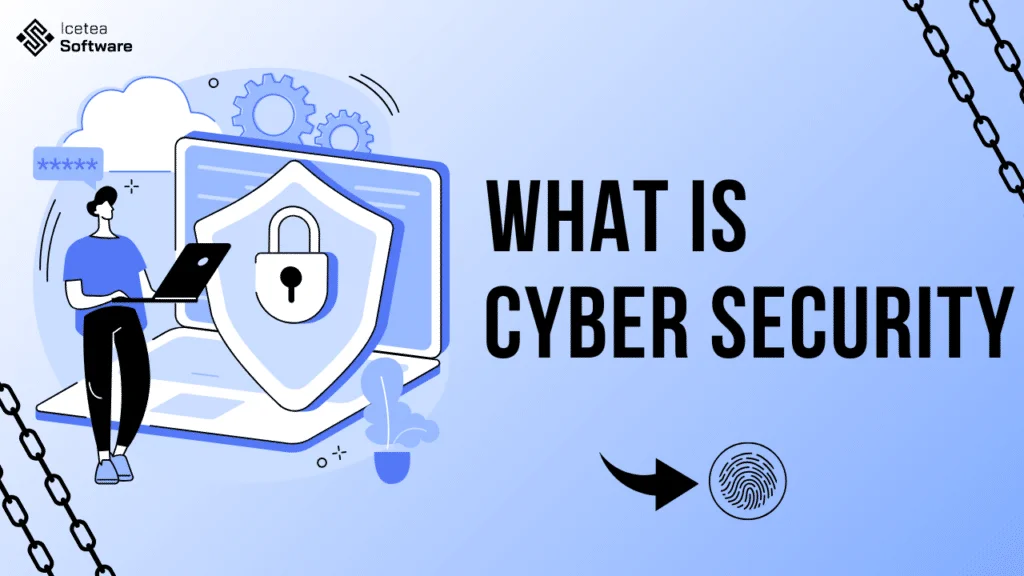
Around 80% of healthcare systems have plans to boost their investment in digital healthcare technologies in the coming five years, highlighting a strong focus on leveraging technology to enhance healthcare services. This increased investment is not merely a theoretical intention but a concrete response to the escalating demand and potential of digital health solutions.
Forecasts indicate that the global healthcare services market will surpass $9 trillion by 2026, underlining its significant growth prospects. Additionally, the healthcare IT market has already experienced substantial expansion, reaching a value of $320 billion in 2022. It is expected to witness a remarkable surge, reaching $857.6 billion by 2030.
- Blockchain
Blockchain technology is a secure way to manage health data. Its potential for ensuring data integrity, enhancing privacy, and enabling secure data sharing makes it a promising tool in healthcare software development.
Guardtime uses blockchain to secure and streamline clinical trial records. This approach secures the authenticity and integrity of trial data, ensuring consensus among multiple parties to validate changes, thus fostering trust and reliability.
Chronicled is addressing counterfeit drugs by optimising pharmaceutical supply chain management using blockchain. Their MediLedger platform focuses on end-to-end traceability, monitoring drug life cycles, and providing real-time monitoring of pharmaceutical products.
- Artificial Intelligence (AI)
AI’s role in healthcare is expanding from diagnostic tools to predictive analytics. It can quickly process vast data, aiding decision-making and personalised medicine. Introducing healthcare AI technology in data analytics can save stakeholders at least $150 million by 2025. This is possible thanks to real-time and long-distance analysis and measurement of patient data. AI is set to become more sophisticated, with potential applications in disease prediction, treatment optimisation, and patient care management.
Arterys creates products for precision medicine. Its medical imaging AI platform assists in detecting various conditions such as breast cancer, cardiac issues, and brain tumours.
Cleerly uses AI technology to improve cardiovascular care by measuring and analysing atherosclerosis, helping determine an individual’s risk of heart attack and recommending personalised treatment plans.
- Internet of Medical Things (IoMT)
The IoMT encompasses a range of medical devices and apps that connect seamlessly with healthcare information systems. These devices, such as wearable biosensors and remote monitoring tools, play an increasingly important role in patient care and data collection.
Robomed Network combines blockchain with AI to revolutionise telemedicine and remote monitoring. It offers enhanced security for data exchange in telemedicine and secure integration of wearable IoT devices for remote patient monitoring.
- Patient-Generated Health Data (PGHD)
PGHD, which includes patient health data created and recorded, is gaining traction. This data, encompassing everything from wearable tech to health apps, provides valuable insights into patient health trends and can improve personalised care.
Intel, in collaboration with the Scripps Research Institute, developed a deep learning algorithm capable of detecting patients with increased heart disease risk, unidentified by regular methods, with 85% accuracy.
- Big Data & Analytics
Big data in healthcare applies to the vast quantities of health data collected from various sources. Analytics tools can process this data to uncover patterns and insights, driving improvements in healthcare delivery, patient outcomes, and medical research.
IBM Watson & Google DeepMind: Both companies are leaders in mining medical records. They aim to create a “cognitive assistant” with extensive clinical knowledge and analytical capabilities. These AI tools help identify new drug targets, recommend drug combinations, and suggest additional diseases for existing drugs.
- Cloud Transformation
Cloud computing is revolutionising healthcare IT with its scalability, flexibility, and cost-effectiveness. Cloud-based solutions allow for better data management, collaboration, and innovation in healthcare services.
Valo uses its Opal Computational Platform to collect human-centric data for disease identification among specific genetic profiles. This eliminates the need for animal testing and assists in molecule design and clinical development.
- Personalised Medicine
Personalised medicine is fueled by advancements in genomics, artificial intelligence (AI), and digital technologies. This approach moves away from the traditional “one-size-fits-all” method of developing medicines and treatments, focusing on general efficacy and minimising adverse effects for the broader population. Instead, personalised medicine aims to customise treatments to meet the specific needs of individual patients, potentially leading to more effective treatments with fewer side effects.
An illustrative example of this trend is using AI and modelling software at the Empa healthcare centre in Sweden. Here, AI is employed to calculate precise dosages of painkillers for individual patients, particularly for potent medications like fentanyl. This method is crucial for managing chronic pain effectively while avoiding the risks of overdose.










